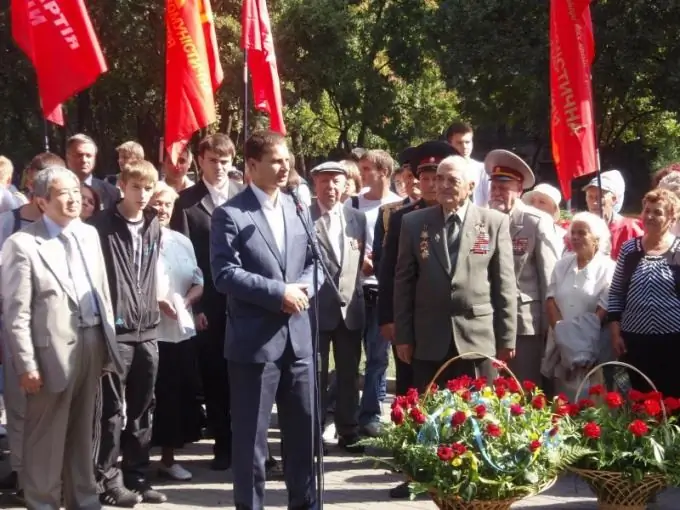- Author Caroline Forman forman@fiestaleisure.com.
- Public 2023-12-16 11:46.
- Last modified 2025-01-23 09:54.
Ukrainians celebrate the Day of Partisan Glory on September 22. This holiday was introduced by the presidential decree of October 30, 2001. Since then, every year in Ukraine on this day, albeit modestly, they honor the participants of the underground liberation movement.

The day for the "partisan" holiday was not chosen by chance. It was on September 22, in 1941, during the Great Patriotic War that the first resistance units appeared on the territory of Ukraine. Archival documents state that over the years of hostilities in Ukraine and Belarus there were about a million partisans. As a rule, the detachments and underground groups included young people.
There were more than 6,000 such formations in total. Their members fought against the Nazis, inflicting serious losses on German troops in the occupied territories. Thus, they contributed to the successful advancement of the formations of the Soviet Army and brought the victory closer.
During the war, partisans blew up more than 5,000 fascist trains, destroyed approximately 465,000 German troops, about 1,600 tanks and armored vehicles, 13,500 vehicles, 211 aircraft, 607 railway bridges and 1,600 highways. Also, the underground fighters put out of action about 2,600 industrial facilities necessary for the enemy, defeated several hundred fascist military headquarters, garrisons, and police stations.
For their heroism and courage, about 200 thousand members of the partisan movement were awarded various medals and orders, 233 people became Heroes of the Soviet Union. Some of these former partisans are still alive today. Therefore, on a memorable day, they are honored and glorified in the country.
Although Ukraine does not hold magnificent celebrations at the highest state level, on the Day of Partisan Glory, the President of the country always congratulates the veterans of the underground liberation movement. Festive events are held at the local level in almost all regions of Ukraine.
For example, in Odessa, Kharkov, Kiev, Lugansk and other cities of the country, the authorities organize a solemn laying of flowers at the monuments of Glory, carry wreaths to the graves of the fallen partisan commanders - Koshevoy, Kovpak, Strokach, Podpudrenko, Korotchenko and other heroes.
Rallies are held, in some cities, the heads of the veterans provide material assistance, almost everywhere for them on this day they arrange meetings with a cultural program and war songs. Thematic lessons of memory are held in schools so that future generations will not forget the great feat.






